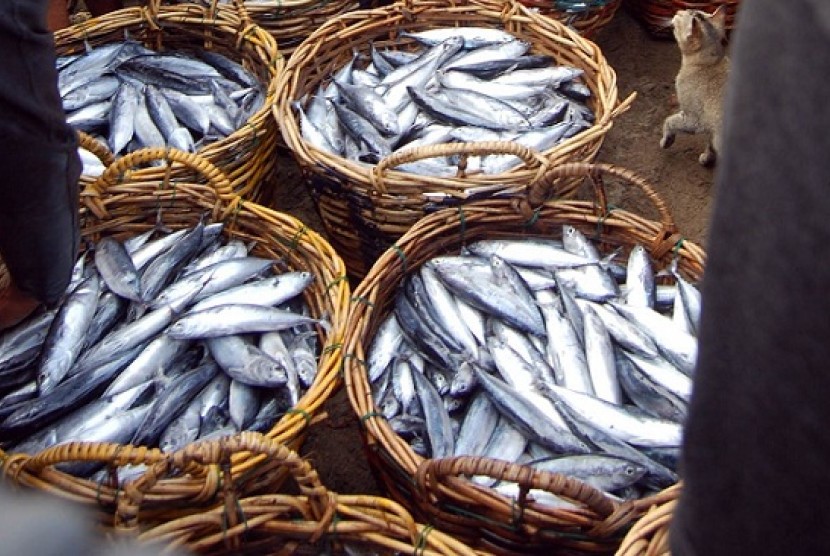REPUBLIKA.CO.ID, JAKARTA -- Indonesia and Norway have agreed to increase cooperation against illegal fishing activities, especially in the fields of technology and funding.
"They are very advanced with regard to monitoring and security. We will help them with technology, funding, and others," Minister of Fisheries and Marine Resources Susi Pudjiastuti said at Merdeka Palace following a meeting between President Joko Widodo and Norway's Prime Minister Erna Solberg here on Tuesday.
She noted that countries across the world are striving to eradicate illegal fishing, especially those that have implemented a sustainable management system to make their fishing resources better.
"Fish will become abundant and poachers will seek to exploit it," she added.
The minister remarked that Norway has a strong monitoring and security system that helps preserve its fish resource.
According to her, the supply and sustainability of fish in Indonesia has attracted the attention of the international community.
"If fish supply here finishes, we will be in trouble because we meet quite much of the world's needs," she pointed out.
Besides increasing their cooperation, the governments of Indonesia and Norway have agreed to support each other's efforts to become non-permanent members of the UN Security Council.
"The two countries support each other's bid to become non-permanent members of the UN Security Council for the period of 2019-2020 for Indonesia and 2021-2022 for Norway," the President said in a joint statement after concluding his bilateral meeting with Erna Solberg at Merdeka Palace.
President Jokowi, as he is also called, revealed that the two heads of government also exchanged views on the South China Sea issue as well as the Middle East situation.
According to him, the meeting has been productive as a number of agreements have been reached.
"Prime Minister Erna Solberg's visit to Indonesia is the first," he added.
The president noted that Norway has been Indonesia's important cooperation partner in the fields of environment, fisheries, human rights, and maritime development.
"In view of that, we have discussed various efforts to increase our cooperation that has been going on since 2010 in the environment field," he revealed.
The two countries have also agreed to step up cooperation in the eradication of illegal fishing, biogas-powered electricity supply, and training 25 police women and 12 teachers from Afghanistan in Jakarta and Bandung.
"In the field of education, cooperation will be carried out with the country's universities including UGM, ITB, and Akper Ibnu Sina," he affirmed.


